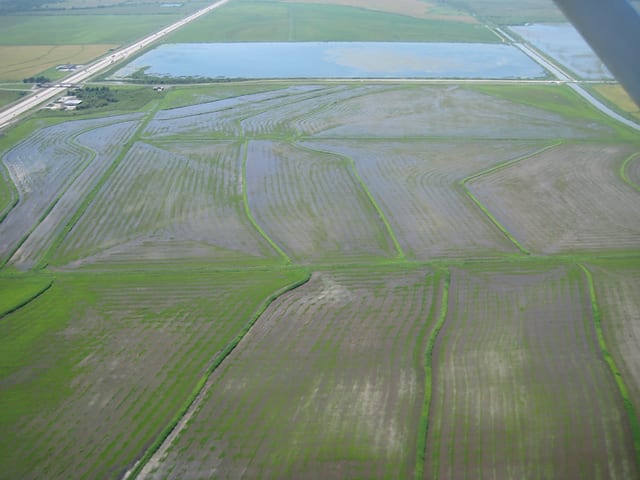 A decision by water officials to stop supplying most Mid-Coast rice farmers because of drought will eliminate hunting opportunities next fall, according to Ducks Unlimited.
A decision by water officials to stop supplying most Mid-Coast rice farmers because of drought will eliminate hunting opportunities next fall, according to Ducks Unlimited.
Last September, the Lower Colorado River Authority announced it was considering cuts to farmers if drought worsened this year.
But Todd Merendino, DU’s manager of conservation programs, said the move will “double current waterfowl habitat shortfalls along the Gulf Coast and it will likely reduce hunter opportunities this fall.”
“Our concern,” he added, “is that decision makers don’t realize the full economic and cultural impacts of essentially eliminating rice agriculture from the Texas Mid Coast and greatly reducing important waterfowl and wildlife habitats in one fell swoop.”
Wetlands associated with Mid-Coast rice farming provide habitat for nearly 2 million waterfowl during winter months, DU said.
Although Texas saw considerable rainfall in early 2012, it was not enough to sufficiently recharge two of the Highland Lakes, Lakes Buchanan and Travis. They were only 42 percent full on March 1, according to an LCRA news release.
LCRA officials set that date to make a decision about downstream releases to rice farmers in Colorado, Wharton and Matagorda counties.
“The combined storage of the lakes Friday was about 847,000 acre feet,” the news release stated. “Because storage was less than 850,000 acre-feet on March 1, farmers in the Lakeside Gulf Coast and Pierce Ranch irrigation operations will not receive any water from the Highland Lakes this year.”
Farmers in the Garwood irrigation operation, however, will still receive up to 19,000 or 20,000 acre-feet because of an earlier contract with LCRA, according to the news release.
The Texas Commission on Environmental Quality approved the drought plan. Had that not happened, farmers would have been entitled to as much as 178,000 acre-feet of water, according to LCRA.
“This is the first time in history that downstream farmers will not receive all the water they need from LCRA,” said Becky Motal, LCRA’s general manager. “This was a difficult decision by LCRA and the stakeholders, but one that was made with the best interest of the entire basin in mind.”
DU officials predicted more wetland shortfalls.
“With state population projections doubling over the next 50 years, water availability will become an increasingly difficult issue,” according to a DU news release.

